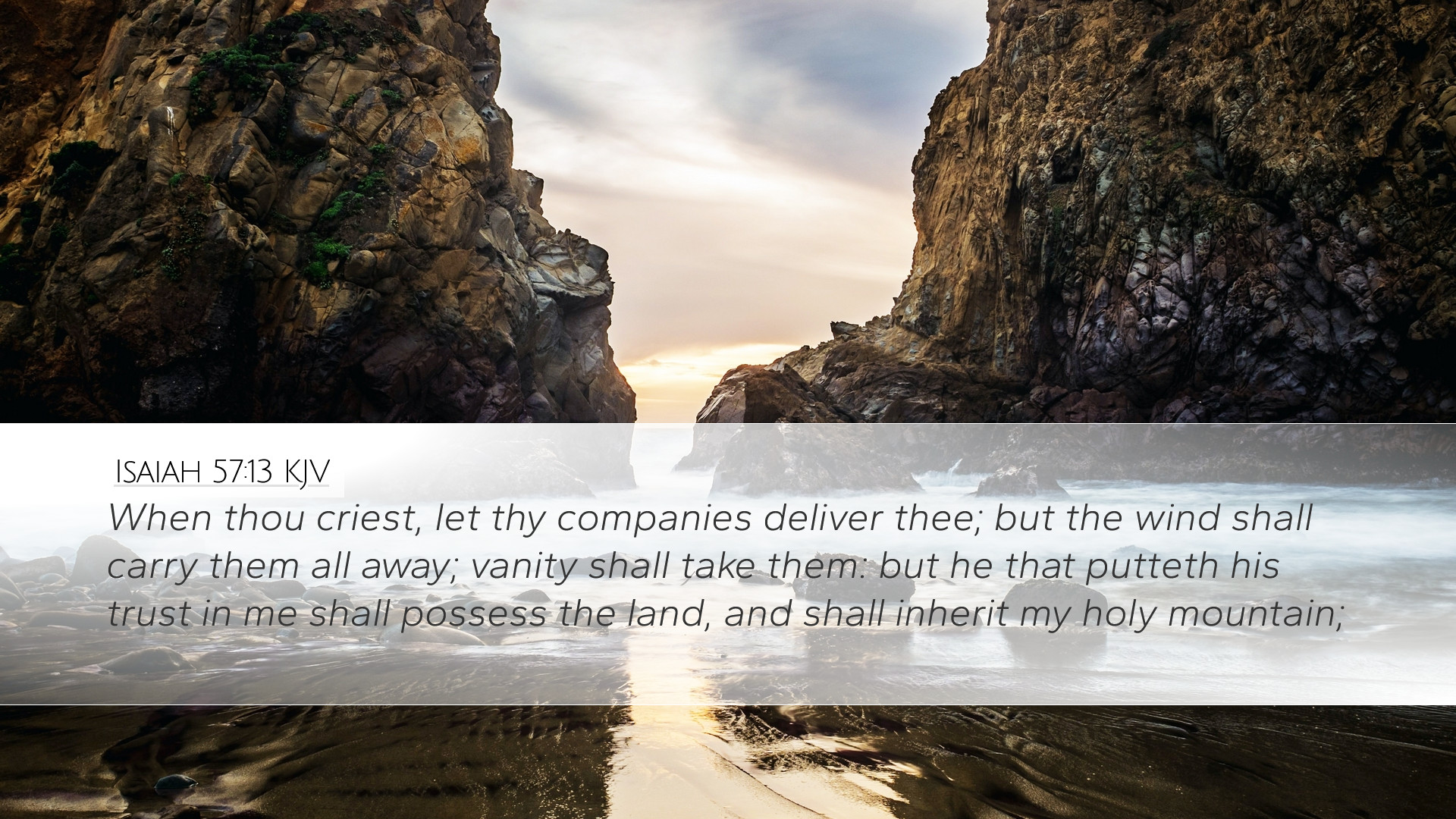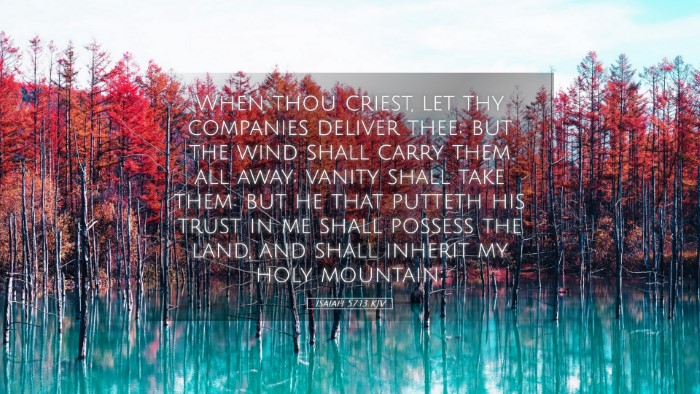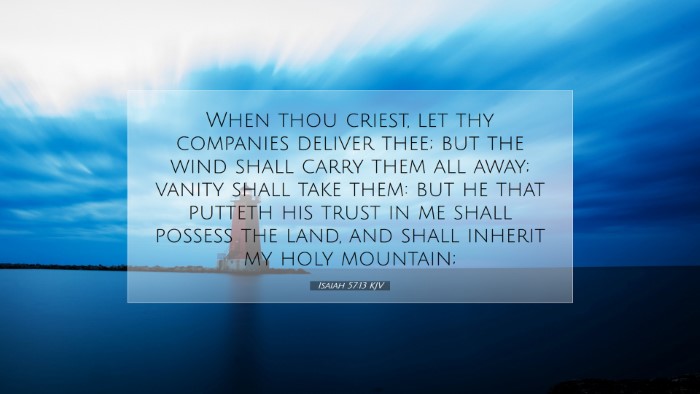Commentary on Isaiah 57:13
Verse: Isaiah 57:13 - "When thou criest, let thy companies deliver thee; but the wind shall carry them all away; vanity shall take them: but he that putteth his trust in me shall possess the land, and shall inherit my holy mountain."
Contextual Overview
This verse is situated within a broader context where God speaks of the transgressions and spiritual state of Israel. The chapter addresses the idolatry of the people, their false hopes, and the true trust that ought to be placed in God. Despite their rebellion and reliance on worldly comforts, the ensuing verses promise restoration for those who genuinely seek the Lord.
Analysis of Key Themes
- False Security: The passage points out the futility of relying on earthly allies and possessions. As Matthew Henry notes, those who rely on their companies (either literal or figurative allies) for salvation will ultimately find them ineffective, as the “wind” will sweep them away.
- Vanity: This verse highlights the concept of vanity. Albert Barnes emphasizes that material possessions and human alliances can provide a false sense of security but, in reality, they offer no lasting comfort or deliverance.
- The Promise of Trust: The latter part of the verse contrasts the fate of the vain with the promise of inheritance for those who trust in God. Adam Clarke explains that true possession and peace come only through reliance on divine promises rather than human endeavors.
Historical and Theological Considerations
Historically, the Israelites were prone to seeking assistance from neighboring nations rather than turning to God. This reflects a wider trend wherein spiritual needs were often overshadowed by immediate worldly concerns. Theological reflections on this passage encourage believers to examine their own lives for similar patterns of misplaced trust.
Spiritual Implications
- Trust in God: The verse serves as a reminder of the importance of placing one’s trust solely in God, echoing the sentiments found throughout Scripture, notably in Proverbs 3:5-6.
- Endurance through Trials: For believers facing tribulations, this verse reaffirms that reliance on God not only guarantees sustenance through hardships but also the promise of greater inheritance. In this light, the mountains symbolically represent the spiritual heights and stability believers find when they anchor themselves in faith.
Living Out the Message
For pastors and theologians, this passage encourages deep contemplation of where reliance is placed within personal ministry and community life. It challenges leaders to guide congregants towards a foundation built on faith rather than cultural or societal structures that are temporary and prone to failure.
Conclusion
Isaiah 57:13 serves as a sobering reflection on the consequences of misplaced trust while offering hope for those who seek refuge in God. As the commentaries by Matthew Henry, Albert Barnes, and Adam Clarke collectively demonstrate, the true promise of inheritance is reserved for those who steadfastly rely on the Lord amidst the stormy winds of life. This passage beautifully encapsulates the essence of faith in action, urging each believer to anchor their hope in the eternal rather than the ephemeral.


